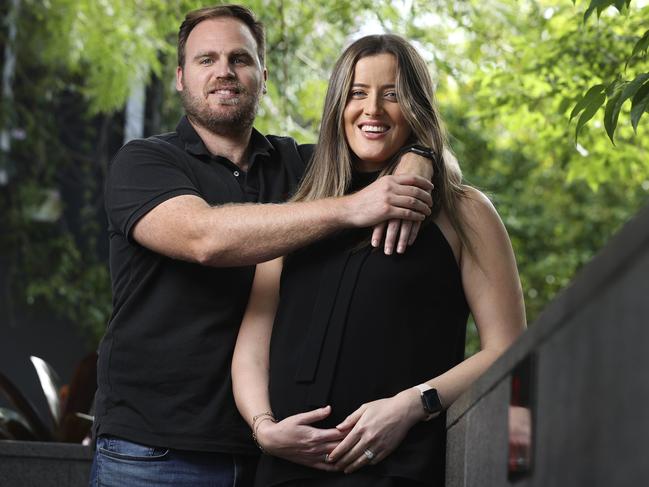Obesity could slash five years off future generations’ life expectancy
A silent health epidemic threatens to reduce the life expectancy of Queenslanders born in 2032 by five years, shock research finds.
Lifestyle
Don't miss out on the headlines from Lifestyle. Followed categories will be added to My News.
The life expectancy of a Queensland child born in 2032 could be cut by five years if obesity rates aren’t halved, according to alarming new research.
A report from Health and Wellbeing Queensland (HWQld) has revealed the next generation of Queenslanders could live a shorter life than their parents due to the impact of obesity.
The Australian-first modelling has made projections about how obesity rates will affect the next generation, finding that obesity and overweight rates in kids will have to halve to restore life expectancy to that of earlier generations.
Excess weight has been found to cost the state’s health system $756m a year, with two-thirds of adults and one in four children overweight or living with obesity.
Based on Queensland-specific data, the modelling showed that the life expectancy for children born in the decade from 2023 could drop by up to 4.1 years if nothing is done to reverse obesity rates.
Meanwhile, life expectancy in First Nations children could reduce by up to 5.1 years and potentially widen the life expectancy gap between First Nations and non-Indigenous Queenslanders.
HWQld chief executive Robyn Littlewood said the report was a warning that greater measures needed to be put in place to protect life expectancy and ease pressures on the health system.
“It paints a grim picture of how children born next year will live a shorter life than their parents if obesity rates continue as they are,” Dr Littlewood said.
“This has never happened before. Just as shocking is the fallout for First Nations Queenslanders, who stand to lose the most time.”

The research found that obesity rates need to return to that of the 1970s, which is half of what they are today.
“This will be the challenge of a lifetime, but we have already started this work in Queensland and are laser focused on ensuring our Queensland kids have the best chance at a healthier future,” she said.
Obesity rates worsen for those living in regional and rural areas, as well as First Nations communities, with Dr Littlewood saying more needed to be done to ensure environments are changes.
“Gaps in access to education, housing, healthy food and secure employment also start early, feeding a cycle of disadvantage and poor health,” she said.
“Frameworks that ensure fairness, strong policy, more investment in prevention and programs that support people to get healthy and stay out of hospital will be central in breaking this cycle.
“The Queensland Government is developing strong frameworks to help achieve this.”
Former Olympic rowers Jess and Will Lockwood from Paddington are expecting their first child at the end of this year, with Ms Lockwood, 30, saying promoting health and wellbeing will become a vital part of her parenting style.
“With both of us as former elite athletes, exercise and a balanced diet has always been really important to us and it’s only going to be get more important as we become parents,” she said.
During pregnancy, she has worked with her obstetrician to navigate the best ways to stay healthy both for herself and her baby throughout.
“That perspective from the outset and the care we’ve had has really shaped the journey and given us that confidence to stay active and get where we are today,” she said.
More Coverage





